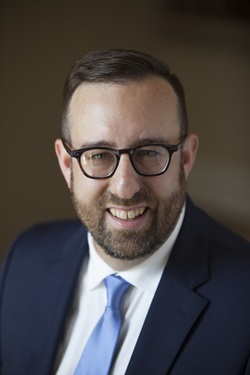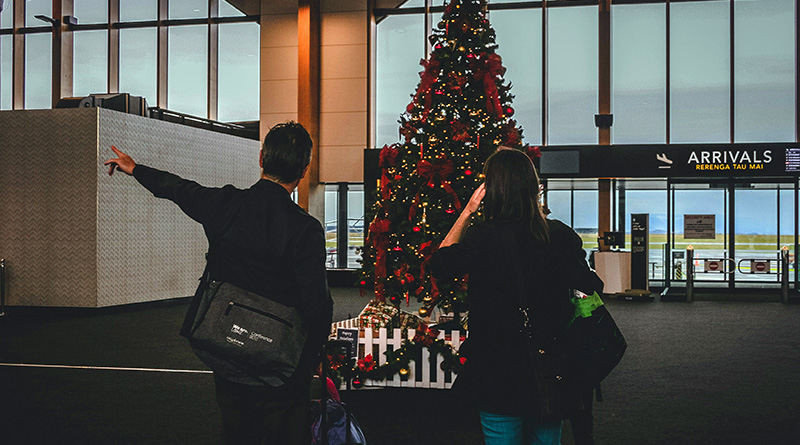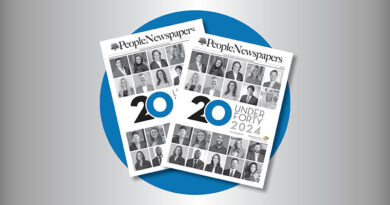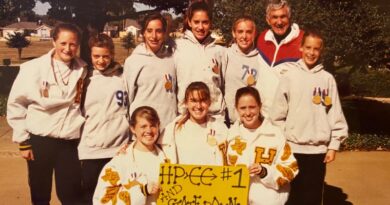Voices: The Holidays and The Ambiguity of Hope
By Anthony J. Elia
I love airplanes and happen to live near DFW international Airport. So close, in fact, I constantly hear the industrial engines of passenger jets cruising over my home as the planes prepare to land or are accelerating into the atmosphere.

I travel frequently and enjoy my short transitions in the airport terminals, albeit, even with the crowds, especially around the holidays when airports are adorned with bows, wreaths, and candy cane decorations. I don’t mind the low expectations about lines and processed travel foods or the uncertainty of ever-changing gates and schedules. But I also just like to watch the airplanes parked at their gates, being pushed off their aprons, taxiing along the flight lines, and taking off or landing.
There is a silent joy about the ‘in between’ nature of an airplane — where groups of strangers gather for a few or dozen hours, are shuttled off to one place or another, a few hundred miles or 10,000, and defy the laws of gravity. We should only be in wagons, really. But that’s another story.
I like to witness and experience airports and airplanes because they are emblematic of our human desire for change, for the transient nature of life, and for aspirations of hope. But they are also inherently ambiguous, because these globe-circling airplanes are going toward unknown places, where new experiences and interactions await the crews and passengers, whether a big family holiday gathering in Cleveland or a solo trip to Fiji for New Years.
Similarly, for me, as an observer with my two feet on the ground, I wonder with hope and uncertainty about the countless souls going off into that great unknown we call the future. Hope and ambiguity go hand-in-hand, where we look forward toward a life of promising experiences, all the while with doubt, uncertainty, and some fear.
This got me thinking that the joys of airplane spotting and air travel are in many ways like what we as a country are experiencing this year as we experience the holidays, after one of the most intense and consequential presidential races in years — an ambiguity of hope.
We are all looking to a positive future, yet our present moment is drowned in media narratives of anxiety, doubt, and uncertainty. The root of ambiguous means to go both ways, which is effectively how we project our feelings and uncertainties of hope. The 19th Century theologian Søren Kierkegaard wrote that ambiguity was tied to anxiety — that which we now understand as worry, unease, and nervousness around an imminent and uncertain outcome.
Holidays can summon up those tensions and fears, as can unruly traffic, too much work, and the demands of friends and family. And what about the hundreds of unknown drones over the East Coast, ongoing wars in Europe and Asia, or a society whose political system seems to be growing ever more fractious?
For many, just trying to get by paycheck to paycheck and being able to have a decent Christmas or have enough to buy the essentials is really what many people are dealing with. The root of anxiety in Latin is to choke. So, in our hopes and desires for a better future, we are choked by the possibility of going in two different directions, and in some cases, we’re just choked by the social and economic demands impacting us.
Kierkegaard’s journals convey an even more troubling scenario of the human condition, stating that “anxiety is a desire for what one fears, a sympathetic antipathy; anxiety is an alien power that seizes the individual, and yet one cannot tear themselves free of it… .” These emotions and conditions are very much part of the world we live in today. This moment is deeply saturated with all these things — ambiguity, anxiety, and hope. And as human beings, these will always be part of the fabric of our society, of our lives, and of who we are.
Yet we need to remind ourselves that hope is still the guiding light among those things that hold us back or give us fear. Hope also happens to be part of that other famous trio found in 1 Corinthians 13:13: And now these three remain: faith, hope, and love. But the greatest of these is love.
At the beginning and end of each day, it’s important for us to evaluate the real meaning in life and say, “thank God I’m alive, despite all the woes, trials, and ills of the world.” Let’s just remember, no matter how bad the world seems to us, our goodness and love must still be the greatest thing we hold to make the world better.
Anthony J. Elia is the director and J.S. Bridwell Foundation Endowed Librarian and associate dean for Special Collections and Academic Publishing at SMU Dallas.









